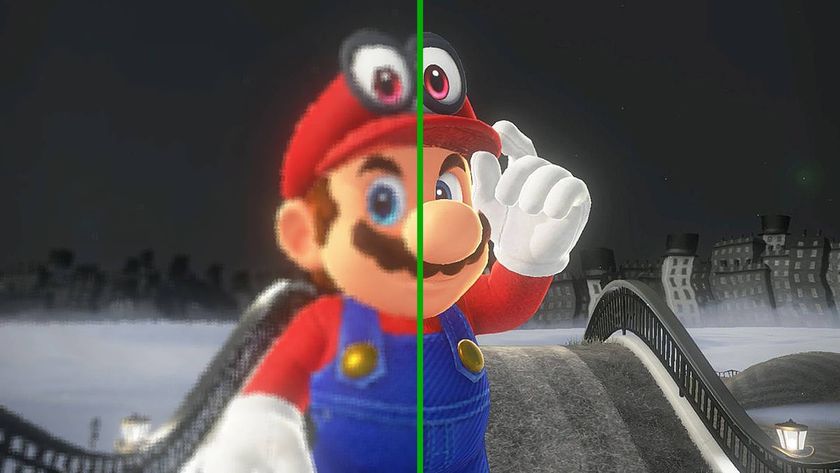BLOG Record Breakers
None
SFX blogger Steven Ellis reckons we’re all being duped by claims of “record breaking box office”

After reading an article about all the box office records the new Harry Potter film is breaking, I became curious about these top earners lists. I’ve never really paid that much attention to these sort of things before; they’re just headlines that seem to happen and records that seem to get broken every summer. So I went in search of a list of the top-grossing films thinking this might be a good indication of just how well Potter is doing and what sort of heady company the film is going to find itself in in the annuls of cinema history. IMDB and Wikipedia were my first ports of call; what I discovered is these box office records seem to be a bit of a crock.
Let’s take the Top 50 Highest Grossing Films Ever as listed on Wikipedia . More than 50% of them were released after 2000. 2010 and 2009 have the most entries with 13 between them. The earliest film in the list is Star Wars from 1977 – the only film from the ’70s. There is only one film from the ’80s and that’s ET . There are seven films from the ’90s. The rest, 42 of them, are all post 2000.
IMDB who use Box Office Mojo ’s top-grossing films list was a bit different. The top 25 or so were identical on each list but after that they started to differ. It’s all pretty much the same films in both lists, but after number 25 they are in slightly different positions – some ten or more positions and several million dollars different.
Now this struck me as a little odd. Two lists about the same thing; how much money a film made and yet there are differences in the lists. So, is it a sums problem? Neither list gave a source for their figures. Nor exactly what was counted other than $$ signs. Yet there are differences.
Let’s take a film at random; ET . In the IMDB list it’s at position 37 with a gross of $756,700,000 and in the list on Wiki it’s in 31 st place with a gross of $792,910,554. That’s a difference of nearly $50 million. So, somebody’s figures must be off.
I checked to see what the most recent film on both lists was and they both have Pirates Of The Caribbean: On Strange Tides at seventh place. Again there’s a slight difference in the money they made but it’s the most recent film on both lists so they’ve both been updated since May of this year when that film was released.
Sign up to the SFX Newsletter
Get sneak previews, exclusive competitions and details of special events each month!
Now I know everything on the internet has to be taken with a pinch of salt, but I thought using these two sources would have gotten me something close to the truth even if there were discrepancies. And as I’ve said; there are discrepancies. But I wasn’t expecting there to be differences of tens of millions of dollars. So, I decided to try and find what the method of calculation was and here’s where I found the crock.
There doesn’t really seem to be one.
The lists aren’t adjusted for inflation or the added cost of a 3D or IMAX ticket compared to standard 2D tickets. There doesn’t seem to be any effort to just count the number of tickets sold; no actual bums on seats number.
The lists I found that did tally up across the board were “Opening Weekends”, which Potter has just topped, but again the oldest film in the top ten was just eight years old and it said there were no figures prior to 2002 available. I don’t even know if the opening weekend profits were recorded prior to that. And it doesn’t seem as though any inflation adjustment is involved in these lists either.
The main thing I found was that there seems to be spiralling record earning numbers that are constantly being bested and film companies keep grabbing “Number One Grossing Film” headlines on box office numbers that are shaky at best. Now, I’m not judging. If that’s how these companies choose to market their films or rate their success then that’s the way they’ll do it. And if news outlets want to report these figures as a measure of success then fair enough. It’s just marketing and hype after all. But all this hunting had got me interested in what an actual adjusted for inflation top grossing film list would look like.
I found such a list at Box Office Mojo and boy is it a very different looking list. There isn’t a film from the noughties in the top ten. Gone With The Wind from 1939 is top of the list. The highest post 2000 film is Avatar coming in at 14th place. The highest Harry Potter film is The Sorcerer ’s, sorry, Philosopher’s Stone in at 67th place.
This adjusted list still isn’t perfect. Many of the films featured on it have had multiple releases over the years so they’ve had longer than others to make money. So the maths isn’t perfect and it doesn’t say when it was last updated (the newest film in the list is Toy Story 3 from 2010 so it’s at least as current as last year). The list I used is, however, adjusted for 2011 prices, so if they have 2011 prices in there you’d think they’d have 2011 films too.
Whichever way you look at it these lists seem to be a marketing ploy and not much more. As I said earlier, I’m not judging the use of these lists or trying to rubbish the film companies for using them, and I’m not trying to downplay the success of the latest Harry Potter film. I was just interested in exactly what all this “Highest Grossing Movie” stuff really meant and whether it could ever be a true representation of how good a film is or be anything more than just number juggling which doesn’t really mean that much.
In the end any list is only as good as the faith you put in the numbers that were used to create it and I was quite surprise to see how much stock is put in this kind of thing considering the numbers in these list seem to be tenuously calculated at best and skewed towards making this years hit films look better than last years.
The only really heartening thing I did find was that quite a lot of the films in all the lists I looked at were in the sci-fi/fantasy genre. So, that’s something I suppose.












